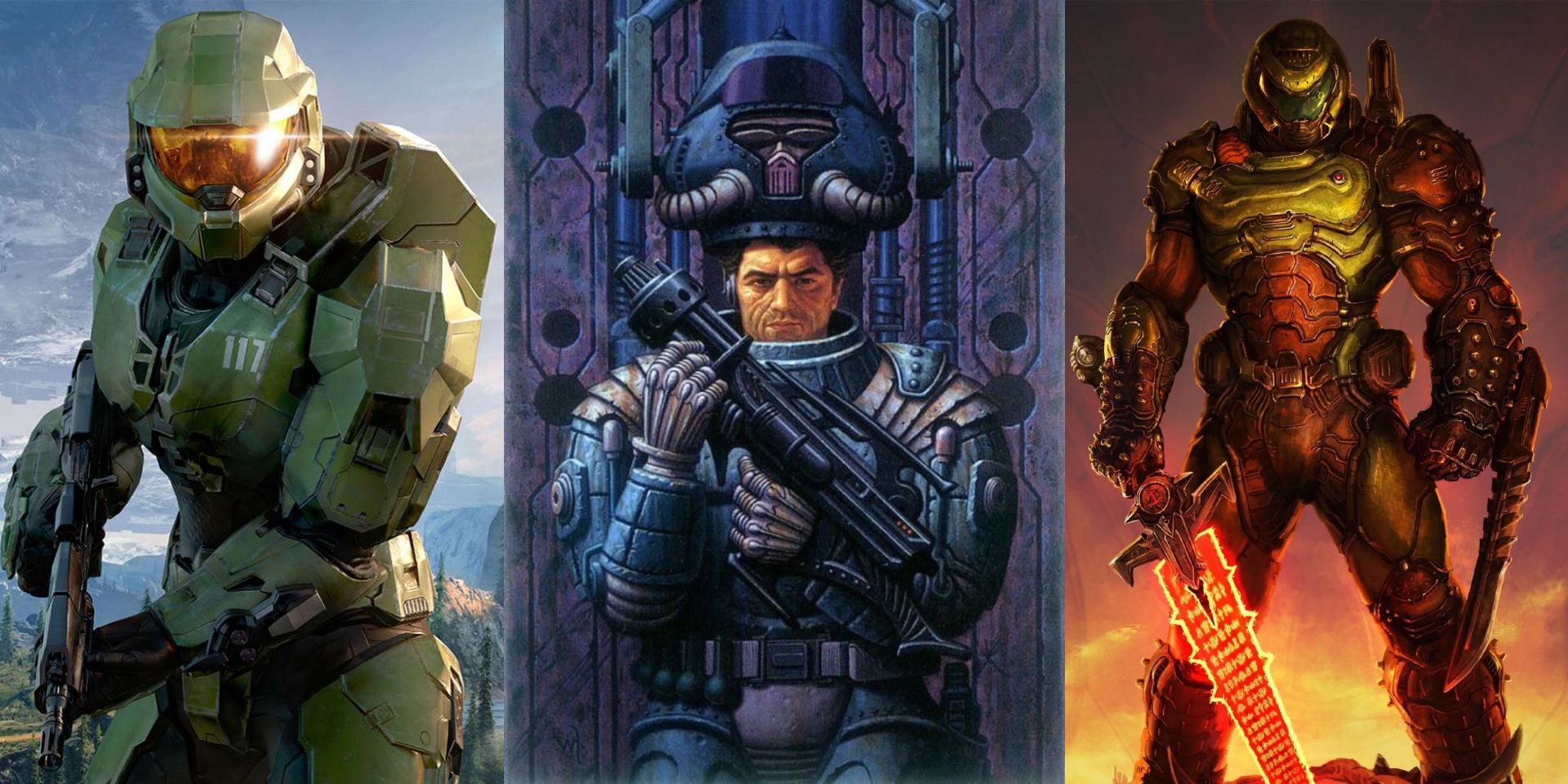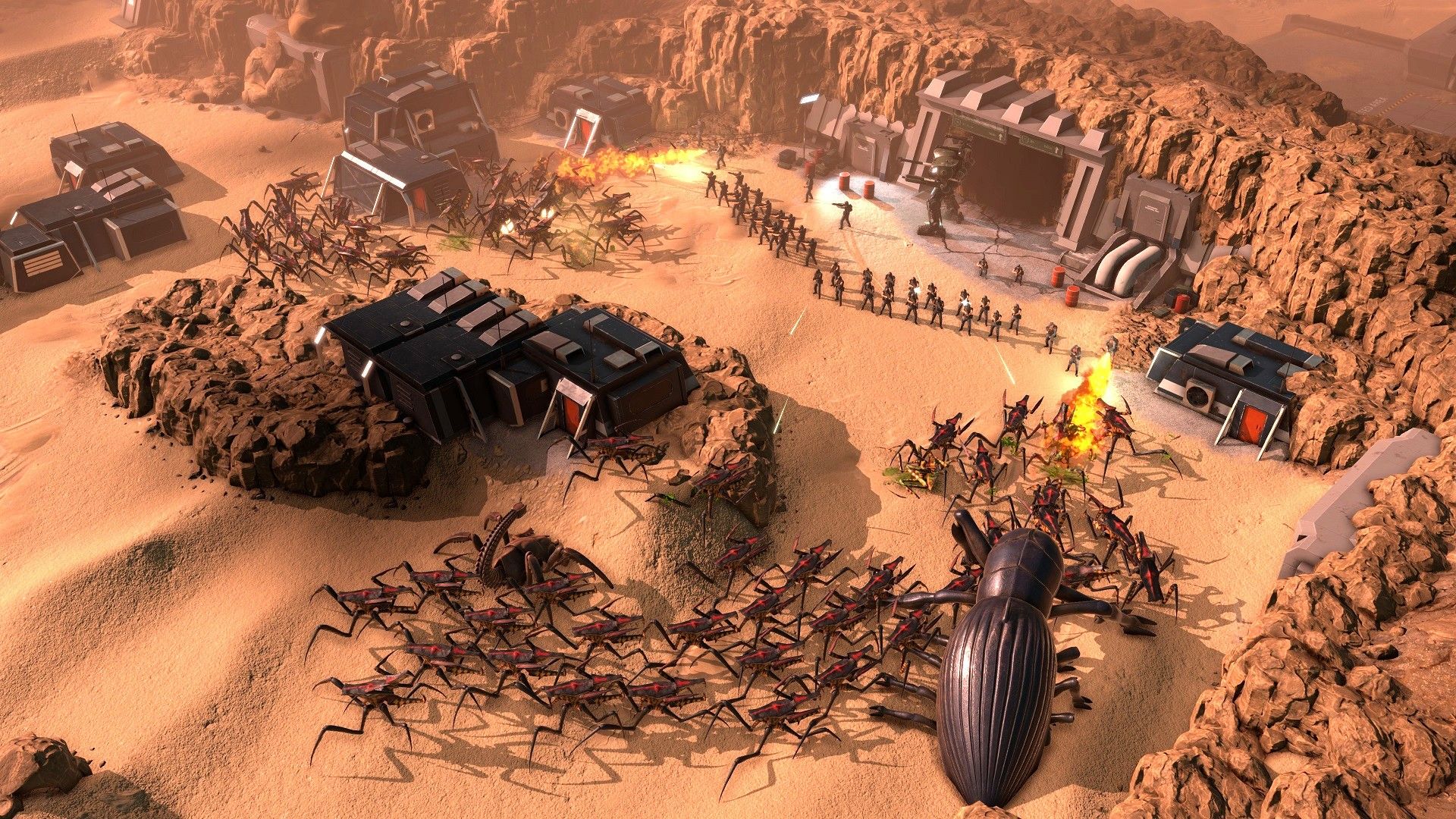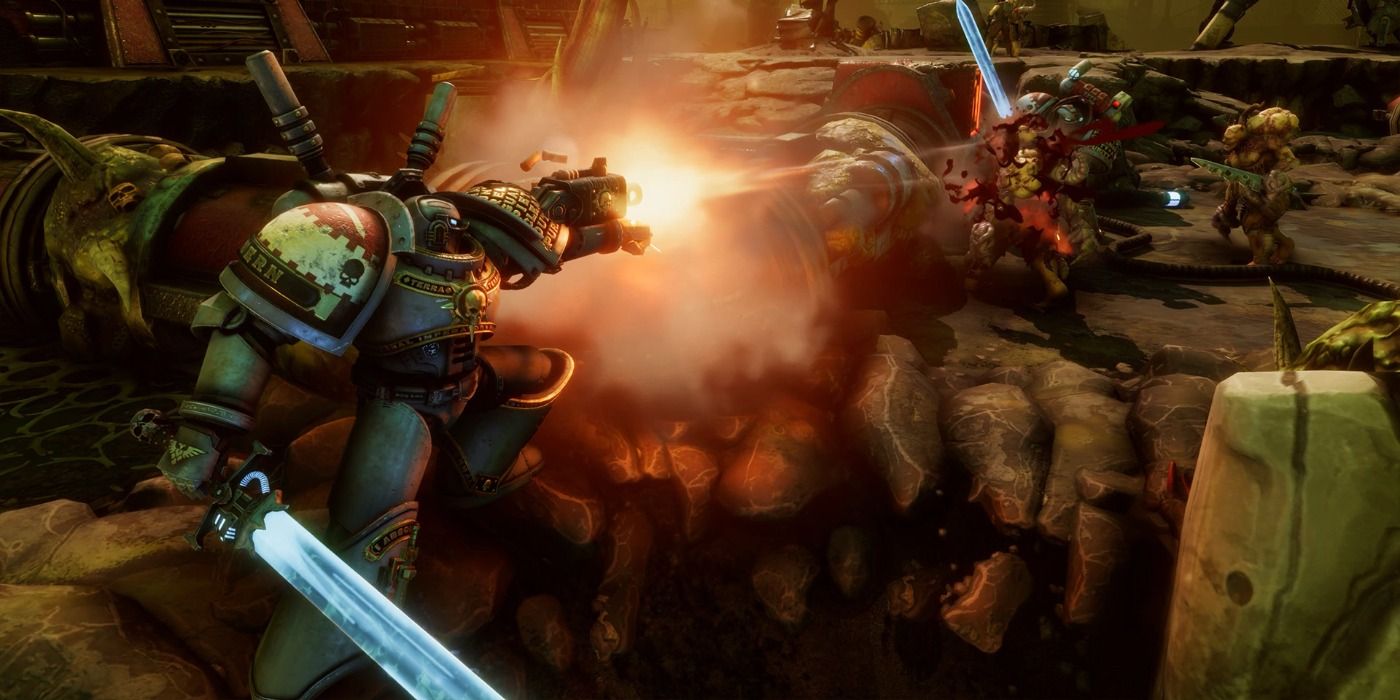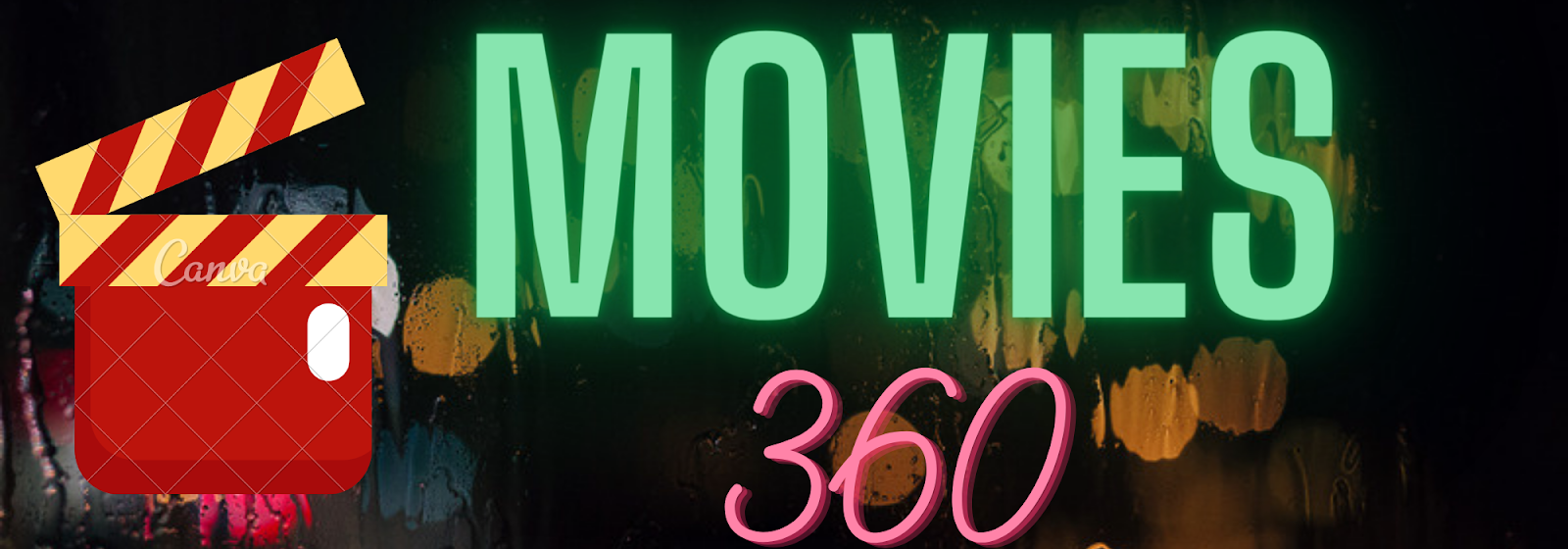
DOOM, Halo, Gears of War, Titanfall, Helldivers, Warhammer 40K, Starcraft – all these games and more owe their existence to the Starship Troopers novel published by author Robert Heinlein in 1959, which popularized the "Space Marines fighting alien bugs" tropes so common in the FPS and RTS video game genres. Intentionally or not, many of these sci-fi video games also internalize the not-quite mainstream politics expressed in Heinlein's original book - a lionization of elite all-volunteer military forces, brutal conflicts between individualist and collectivist societies, and a belief that violence is a tool humans need to survive in a harsh universe.
More people these days are familiar with Starship Troopers from its 1997 film adaptation by Dutch director Paul Verhoeven. On release, many fans of Robert Heinlein criticized Verhoeven's adaptation for portraying the Mobile Infantry as incompetent, fragile cannon fodder who lacked the Mecha suits of the book and games. Cool military gear aside, the book and film were completely inverted as well; while the Starship Troopers book was a Cold War allegory about the clash between the Western and Eastern Blocs, the Starship Troopers movie was a dark satire about the dangers of fascism and glorifying violence (to the point of invoking imagery from the old Nazi propaganda film Triumph Of The Will).
While very different in tone, both the Starship Troopers books and movies follow the same plot in broad strokes; on a far-future earth governed by a Terran Federation, a teenage hero named Juan "Johnny" Rico joins an Earth Defense Force called the Mobile Infantry and fights in a war between Earth and a species of alien lifeforms colloquially called Bugs. The original Starship Troopers novel spent more time talking about politics than it did exploring the details of future warfare; still, Heinlein's book wound up shaping the archetype of the "future super-soldier" for decades to come in sci-fi novels like Joe Haldeman's The Forever War, James Cameron's Aliens movie, and practically every FPS video game with a Space Marine protagonist.

The Doom Slayer from Doom, the Master Chief from the Halo franchise, Samus Aran from the Metroid series - these are just a few of the video game protagonists who can be described as "Space Marines" - elite armored super-soldiers who are dropped onto their targets from outer space. These Space Marine characters and the weapons they wield owe a lot to the firepower-toting Colonial Marines of the Aliens movie, who themselves owe a lot to the Mobile Infantry of the Starship Troopers novel, elite soldiers who are equipped with mechanized battle-suits that give them the power of a tank. The Mobile Infantry of Starship Troopers and the other fictional Space Marine militaries they inspired are invariably small, elite volunteer forces with the best equipment and a "leave no one behind" attitude, making them a solid character archetype for FPS games like DOOM or Halo where the protagonist slaughterers their way through hordes of expandable, non-human goons.

The Terran Federation of Starship Troopers is a society built around the idea that violence is the only way to check other violent peoples and voting rights should only go to those capable of self-sacrifice. Many science fiction action games echo these ideals - and this isn't always a good thing. The values lauded by Heinlein – heroism, sacrifice, duty, strength, and readiness to commit violence - are core to the espirit de corps of many modern militaries and many science fiction FPS games.
They're also values embraced by the archetypical Fascist described by Umberto Eco in his Ur-Fascism essay, who seeks perpetual strife against an eternal subhuman threat. In this light, Paul Verhoeven's Starship Troopers movie (and the thematically similar Helldivers third-person shooter game) seek to remind people that the "humans vs. bugs" plot and "Service Equals Citizenship" message of the original Starship Troopers and similar FPS video games about future warfare, under the wrong circumstances, can easily be twisted to justify atrocities.
How Robert Heinlein's Starship Troopers novel influenced nearly every sci-fi First Person Shooter game on the market in good (and not so good) ways.Coleman Gailloreto
